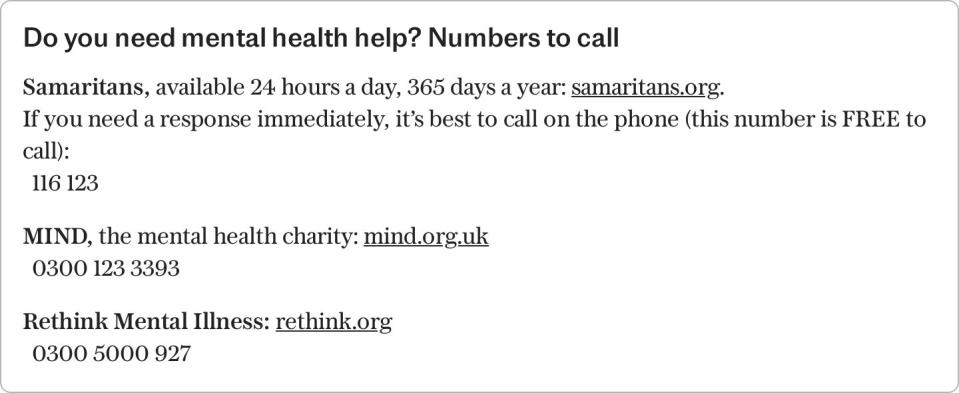Thomas Kingston’s parents speak of ‘great pain and grief’ at son’s death

The parents of Thomas Kingston, Lady Gabriella Windsor’s late husband, have spoken of their “great pain and grief” at his death.
Martin and Jill Kingston said they wanted their son to be remembered for the “big smile on his face” and hoped that “something good” would come of his death at their Cotswolds home last February.
Kingston, 45, who was married to Lady Gabriella, the daughter of Prince and Princess Michael of Kent, was found dead in a locked bathroom with a “catastrophic head injury” and a gun close to his body.
Katy Skerrett, senior coroner for Gloucestershire, ruled in December that he had been “suffering adverse effects” of medication he had recently been prescribed to help with trouble sleeping and anxiety.
She said people taking antidepressants should be warned of the risk of suicide.
Recalling the final moments she spent with her son, Mrs Kingston told BBC Radio 4’s Today programme that he had been “normal, fun and laughing about things” and that nothing had raised their suspicions.

The family spent the day relaxing, reading and sitting by the fire, she added.
Her husband, a retired barrister, admitted that he would be unable to explain the moment he found his son’s body without crying.
The couple said they wanted to speak about their “horrendous experience” in order to address “the level of both misinformation and no information” about antidepressants.
“The desire to ensure that other lives are saved and other people are kept from the pain and grief that we’ve experienced is a very strong one in us,” Mr Kingston said.
Asked how he would like their son to be remembered, he choked back tears as he replied: “I would like him to be remembered as someone with a big smile on his face, while helping people to do difficult things.”
He described his son as a “a joyful, giving” person who was “full of life and caring”, adding with a smile that he “could be quite noisy”.
‘We have leaned into the pain’
Describing how the family had managed to cope in the aftermath of his sudden death, Mr Kingston said they had relied heavily on their deep Christian faith.
“You have to make a conscious decision not to do the ‘what ifs’ or the ‘if onlys’,” he added.
“If only I hadn’t gone for a walk, if only I had... There are so many ‘if onlys’ in there but they don’t change anything.
“And it is important, isn’t it, someone has famously said, to distinguish between the things that you can do that will make a difference, and the things over which you have no control.”
Mr Kingston said it was tempting to “run away” from the pain, by avoiding, for example, the place where he found his son’s body, but he said they had tried instead to “lean into the pain”.
The couple said they wanted to raise awareness about the dangers of the type of antidepressants prescribed to their son, selective serotonin reuptake inhibitors (SSRIs).
They said patients should be told about the potential difficulties in coming on and off such drugs, as well as the risk of suicide, and then sign a document to show they had understood.

They should also have a close friend or relative who will “walk with them” through the experience, they added.
Mr Kingston said: “We wouldn’t be able to be comfortable reading about somebody else going through what we’ve been through, if we had not made clear what we think could happen to save someone’s life and save someone’s grief.”
At the inquest, the coroner heard that Mr Kingston had been prescribed zopiclone for trouble sleeping and sertraline for anxiety by his GP, Dr Nicky Naunton Morgan, who is apothecary to the King and Queen’s Royal household.
He stopped taking the sertraline after a few days because it made him feel “very anxious” and so was instead prescribed diazepam and citalopram. He also doubled his sleep medication.
Dr David Healy, a medical expert, told the court that zopiclone could cause anxiety and that sertraline and citalopram were “in essence” the same drug with a different name, both SSRIs, which could “have a fairly dramatic and catastrophic effect within a very short space of time”.
Lady Gabriella said in a witness statement that she believed her husband killed himself on a “sudden impulse” prompted by a cocktail of sleep and anxiety drugs. She said she wanted his death to act as a warning to others.
After his death, the family was sent more than 400 cards and letters which they hung on a wall of the family home.
Mr Kingston said: “So many of them told us things that we never knew.”



